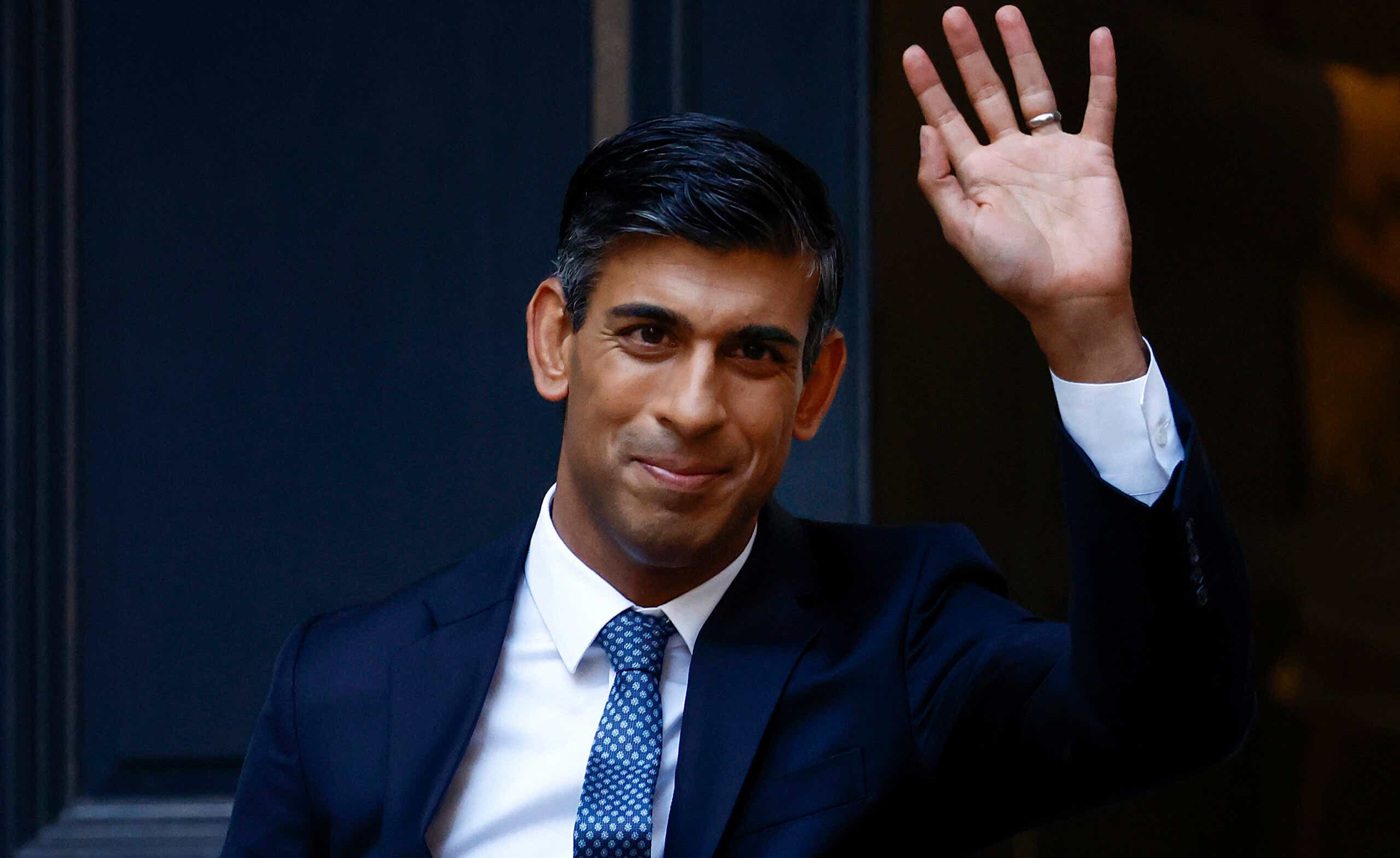At about 7 am ET on October 25, Rishi Sunak entered Number 10 as Britain's third Prime Minister in seven weeks.
The 42-year-old, who lost out to Liz Truss in the Conservative Party's brutal summer leadership contest, is the first person of color to assume Britain's highest office, and the first British PM to be richer than the monarch. He's taking on the job as Britain faces some of its toughest economic challenges in modern history, and as millions across the country are unable to afford basic necessities like food and heating.
Here's the scoop on Sunak's background and his expedited rise to power.
What's Rishi Sunak's background?
Sunak was born in Southampton in 1980, the eldest of three children. His parents, who are Indian of Punjabi descent, moved to the U.K. from east Africa. His father was a local family doctor, and his mother ran a pharmacy.
As a child, Sunak attended the exclusive private boarding school Winchester College, which costs £43,335 ($49,070) a year to attend. He performed well and became head boy before moving on to Oxford University where, like many British Prime Ministers and politicians before him, he studied PPE (Politics, Philosophy, and Economics).
Sunak later attended Stanford, where he gained a master's degree in business administration, and met Akshata Murty, who he later married. After he graduated, Sunak worked for Goldman Sachs and later became a partner at the Children's Investment Fund Management and Theleme Partners hedge funds.
So what's the deal with Akshata Murty?
For starters, she's incredibly rich. Her father, the billionaire NR Narayana Murthy, has been described as an "Indian Bill Gates." He founded Infosys, a software company with an estimated value of nearly $800 million — in which Akshata has a 0.91% stake.
Thanks to her status as a non-domiciled U.K. resident, Murthy's able to sidestep British taxes on her international earnings in exchange for an annual payment of about $34,000. If that weren't the case, she'd reportedly owe more than $22.6 million in UK taxes.
It's estimated that between them, Rishi Sunak and Akshata Murty have an eye-watering fortune of about $826 million. While some have suggested that such extraordinary wealth might mean the new Prime Minister "can't be bought," others have flagged the fact that because he has so much money, world events affect Sunak's net worth disproportionately — and historically, having a lot of money has proven to influence world leaders' decision-making significantly.
Sunak's political rise
Sunak has been in politics for just seven years, a shorter tenure even than that of David Cameron, who'd been a politician for just nine years before he became Prime Minister in 2010. He became the member of Parliament for Richmond in North Yorkshire in 2015, and supported the campaign for Britain to leave the EU in 2016.
After supporting Boris Johnson's leadership bid, Suank was belatedly rewarded with the top job in Johnson's cabinet, becoming chancellor (finance secretary) in a February 2020 reshuffle. Sunak is among the MPs implicated in Partygate, one of the biggest scandals of Johnson's government (more on that here). It was revealed that MPs and civil servants had held multiple boozy illegal gatherings over lockdown — of which 12 breached the threshold for criminal investigation. Sunak was among those to receive a fine for his involvement from the Metropolitan police. An official probe is currently underway to determine whether Johnson deliberately misled Parliament over the parties.
Ultimately, it was Sunak's resignation in July this year over the Chris Pincher scandal (more on that here) that dealt one of the most critical final blows to Johnson's premiership. Sunak entered the Conservative leadership race that followed touting more cautious policies than several of his opponents — including Liz Truss — but ultimately lost out to Truss in the final round.
When Truss's government collapsed last week, it briefly looked as though Boris Johnson might make another bid for office. Once he announced he wasn't going to run, Sunak quickly became the ruling Conservative Party's favorite to replace Truss as its leader — and therefore, as Prime Minister.
After a meeting with King Charles on October 25 for the "kissing hands" — a ceremonial transfer of power — Sunak officially became Britain's new Prime Minister.









